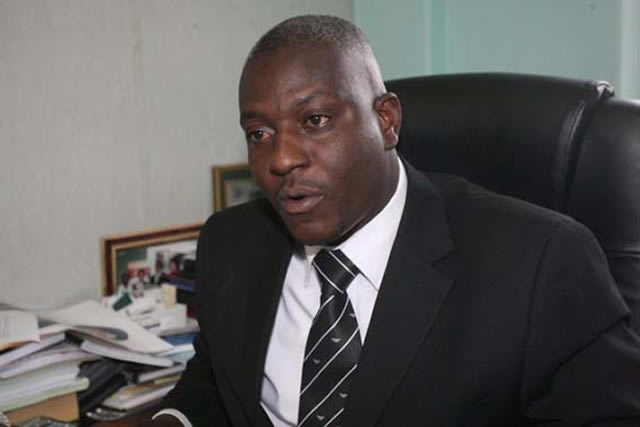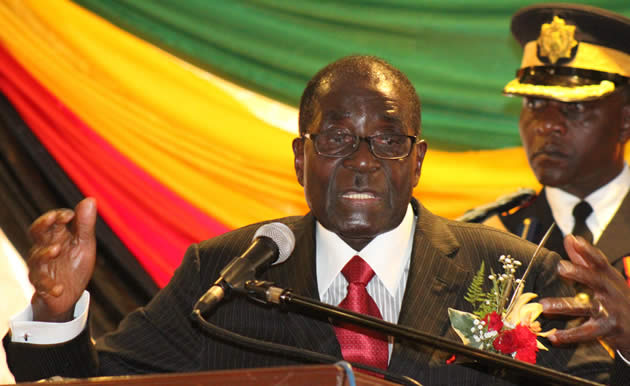Editorial Comment: Sadc stance on security matters laudable

 THE African Union has often been criticised for failing to maintain peace and stability on the continent with its standby force not yet operationalised to execute peace-keeping missions in troubled hot spots. The standby force is needed to better respond to conflicts across the continent and the recent violence in South Sudan, the Central African Republic, Mali and the Boko Haram menace in Nigeria underscores the need for rapid intervention.
THE African Union has often been criticised for failing to maintain peace and stability on the continent with its standby force not yet operationalised to execute peace-keeping missions in troubled hot spots. The standby force is needed to better respond to conflicts across the continent and the recent violence in South Sudan, the Central African Republic, Mali and the Boko Haram menace in Nigeria underscores the need for rapid intervention.
The bloodshed and chaos unleashed by the toppling and subsequent killing of Libyan leader Muammar Gaddafi by Nato forces also reinforces the need for Africa to control conflict resolution on the continent. Sadly, the AU standby force remains a pipe dream with question marks on who has authority to deploy the force and who will fund it, stalling its operationalisation.
However, despite the region being an oasis of peace and stability, Sadc has been the most proactive organ of the AU when it comes to peace and security matters. It has a Sadc Brigade which supports regional peace operations under the African Standby Force Policy Framework.
The Brigade, launched in August 2008, is made up of military, police and civilian members from Sadc member states.
Its mandate is to participate in missions as envisaged in Article 13 of the “mandate” of the Peace and Security Protocol relating to the Establishment of the Peace and Security Council of the African Union, which includes observation and monitoring missions; peace support missions; interventions for peace and security restoration at the request of a member state; and actions to prevent the spread of conflict to neighbouring states, or the resurgence of violence after agreements have been reached.
The Sadc Brigade serves in peace-building efforts including post-conflict disarmament and demobilisation and humanitarian assistance in conflict areas and areas impacted by major natural disasters. It operates as a tool of the Sadc Organ on Politics, Defence and Security and receives its guidance from the Sadc Committee of Chiefs of Defence staff and the Committee of Sadc Police Chiefs.
Training of the Brigade at all levels is a key priority for Sadc. The Regional Peacekeeping Training Centre located in Zimbabwe and other national peace support training institutions play a pivotal role in training military commanders, police officers and civilian officials at various levels. Sadc is therefore well placed to deal with conflicts in the region and examples abound of its effectiveness.
In 1998, Zimbabwe, Namibia and Angola intervened to prevent the overthrow of the Democratic Republic of Congo government under Laurent Desire Kabila. Recently, Sadc forces working under the United Nations peacekeeping mission for the DRC defeated the M23 rebels in the eastern part of that country.
The force, made up of troops from Malawi, Tanzania and South Africa, carried out targeted offensive operations to neutralise the armed groups and prevent violence against civilians. The director of the Sadc Organ on Politics, Defence and Security Retired Lieutenant Colonel Tanki Mothae told Chronicle at the ongoing Sadc summit in Victoria Falls that Sadc would not hesitate to use force when necessary in case of insurgency in the region.
He said UN Security Council Resolution 2098 enabled offensive combat force in dealing with the M23 rebels and this had worked as the rebels were defeated. “These are successes that are a result of the Sadc contribution to peace, security and co-operation framework and also the participation of Sadc through three-member states in the United Nations Mission in the Stabilisation of Congo where there are three countries namely Malawi, South Africa and Tanzania that have contributed the troops that formed the Intervention Brigade,” said Rtd Lt-Col Mothae.
“This is one of the first ever United Nations resolutions that allowed a peacekeeping mission to have an offensive capability in any peacekeeping mission throughout the history of the UN. As a result, Sadc was very willing to contribute and they did contribute to that and we continue to contribute to that initiative for eastern DRC to be stabilised because peace in eastern DRC is peace in the Sadc region, is peace in the International Conference on the Great Lakes Region, is the peace in Africa.
“So, we need that peace because the focus of our region is the deeper regional integration and ensuring the prosperity for the citizens of our region. So, those are the issues that we are focusing on and we want Sadc to remain peaceful as it is and we want to maintain and sustain the gains that we have gained in our region.”
While the region is generally peaceful, there is a need to remain vigilant and guard against possible destabilisation forces. We commend Sadc for maintaining peace and security in the region and call on member countries to remain committed to dealing with conflicts promptly. We hail the spirit of solidarity and brotherhood inherent in the region and urge Sadc states to stay united and resist Western machinations to foist their ideas on them.











Comments